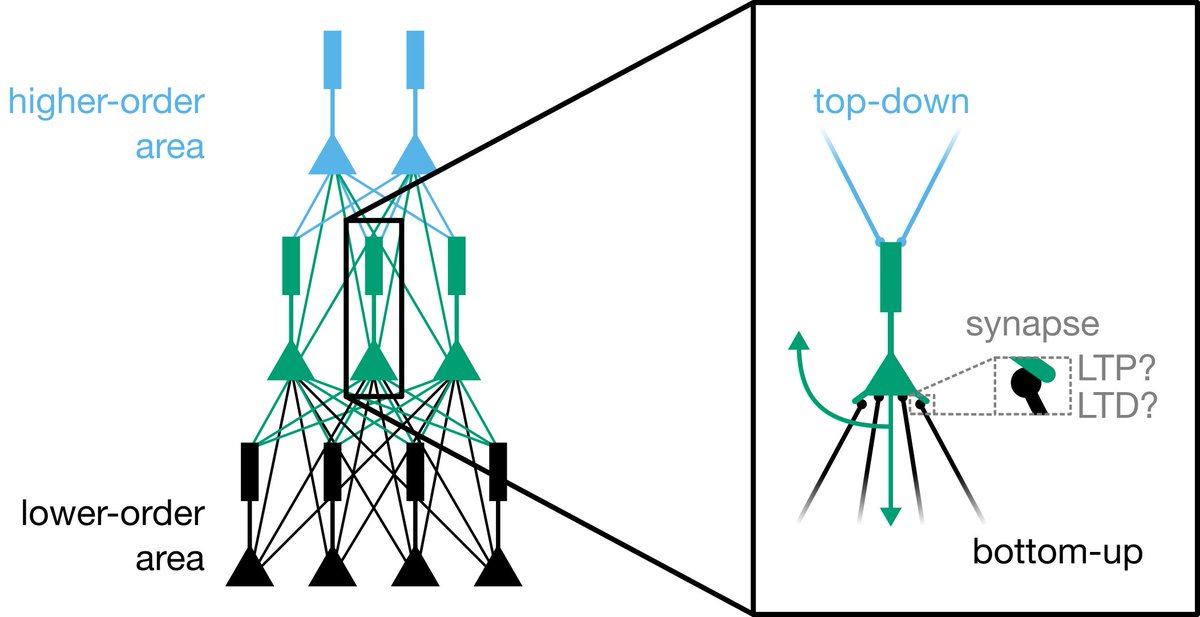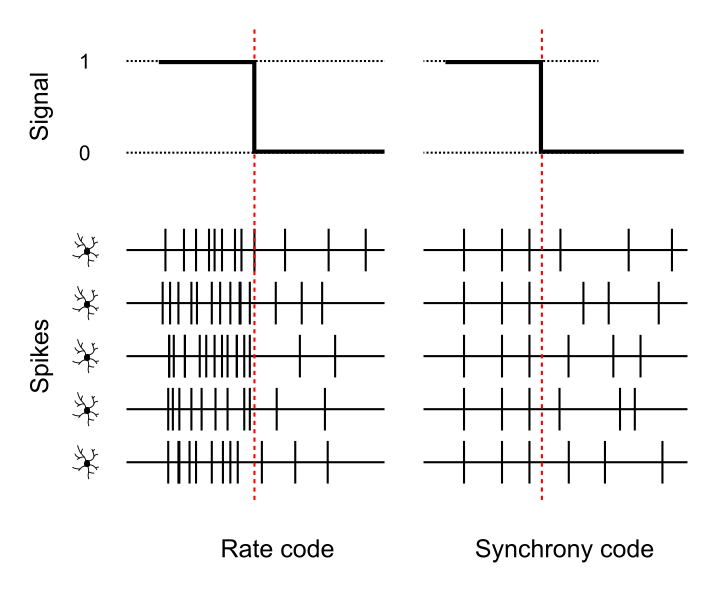
Researcher at @mcgillu combining AI and neuroscience. Also on Bluesky (@tyrellturing.bsky.social) and Mastodon: @tyrell_turing@fediscience.org.
How to get URL link on X (Twitter) App

https://twitter.com/yfreemark/status/1397572313177018375I went to high school in a neighbourhood in downtown Toronto called Cork Town. When I was there, it was a ghost town of old freeway on ramps and warehouses. I was very surprised to learn later in life that Cork Town used to be a dense neighbourhood of Irish immigrants.

https://twitter.com/tyrell_turing/status/1270840814080528384?s=20






 2/ In the example image above, a binary signal is encoded with either a rate or synchrony code. The rate code uses high rate = 1, low rate = 0. In contrast, in the synchrony code the cells have a constant rate-of-fire, but high synch = 1, low synch = 0.
2/ In the example image above, a binary signal is encoded with either a rate or synchrony code. The rate code uses high rate = 1, low rate = 0. In contrast, in the synchrony code the cells have a constant rate-of-fire, but high synch = 1, low synch = 0.
https://twitter.com/RomainBrette/status/1093127066369826816IMO, Brette, and others with his perspective, take an approach to the concept of metaphor that is misleading, and which serves as a constant tool for obfuscation in these arguments.